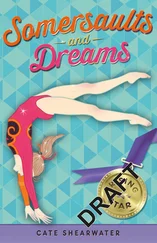However, things didn’t happen so quickly. Things never happen as quickly as the simplifying process of our memory would like to present. Of course, in the beginning, I was so involved in the daily occupation of publishing our newspaper, of which I was editor in chief (contradictory though it may seem, dreams do need editing, organizing, and, like a nursery, they need attention and vigilance: in order for it to blossom, a dream needs fertilizing, watering, pruning), that I didn’t have any time to keep notes on the side. But now that I recall the reactions of the press tycoons in this country, I don’t remember them having one good word to say about our paper.
A few days after the first issue came out (number one, of the first volume, of the first year), and after the unexpected welcome it received by people thirsting for something different (that first issue, as the reader may guess, has a special value, now that the State of Dreams has established itself and the Dream Police guard the borders against any enemy violation of our ethereal space), a few days later, there came to Dimitris’s printing office (located in Alimos across from the famous bakery, it was more than perfect, with the latest in technical equipment, built with the money Dimitris had made while working abroad, all of it foreign currency, the dream of the immigrant realized and our Maecenas found, given to us so our dreams too could be fulfilled) an inspector from the Ministry of Labor in order to check — or so he claimed — whether it was operating according to regulations. Mr. Inspector proceeded to observe that the cylindrical machine, a gigantic electronic monster on which we had printed our first issue, maintained a distance of, not two meters from the ceiling, as the law dictated, but only sixty centimeters. This constituted sufficient cause for the removal of the press’s operating license.
Dimitris was puzzled. Recently back from
Australia, he was ignorant of Greek bureaucracy and unaware of Mama Greece’s longing to draw to the very last drop the blood of any immigrant who made the faux pas of being repatriated and bringing back, like seamen do, all his foreign currency. He didn’t know that this Greek state of ours, during these two hundred years since its birth, had learned to live not by blood transfusions but by drinking blood like Dracula, so he didn’t pay much attention. But we knew and right away were suspicious. How much had the press bosses paid Mr. Inspector to show up out of the blue?
The printing office had been operating smoothly for the past year. Why was there a problem now and not before?
Therefore, it was the very success of our
newspaper — the first issue never even made it to the kiosks, but disappeared, as happens in dreams, right from the distribution vans — that had worried the smooth operators of the press business (who were used to making and breaking governments) enough to send their henchman just in case, as an initial scare tactic.
“And what law is this?” asked Dimitris.
“A law of 1968,” the inspector replied, and pulled out an official document.
“But at that time, these cylindrical machines didn’t exist,” said our friend, relieved. “This law refers to Linotypes, which indeed, for safety reasons, had to maintain a distance of two meters from the ceiling.
Electronic machines are a different matter. And they weren’t put on the market until 1978.”
“Unfortunately, the law is always the law,” said the inspector, bowing his head.
“But you’re going to ruin us!” cried Dimitris. “We can’t raise the ceiling, nor can we lower the machine.”
“Good heavens, we don’t want to ruin anyone,”
said the inspector. “All we are doing is enforcing the law. If only the law would change, then there would be no problem. But until then, I would advise you to start looking for another place. And do it quickly.”
Of course, I think to myself now, if only they had been able to imagine the success of our Almanac , which became a daily paper within a few months, the press tycoons would have acted differently. That same day they would have kicked us out onto the street, thus drowning the yolk in its own shell. Dimitris would have sold everything and gone back to Australia. (It’s not uncommon for an immigrant to be forced to take that road again, because of the deep hatred every wretch who stayed home shows toward the successful repatriated immigrant.)
And who knows what the rest of us would be doing now? However, progress is accomplished in life thanks to the establishment’s predictable inability to deal with the threat of novelty. After all, isn’t that the way it happened in czarist Russia with the revolution?
If they had known of the October Revolution, wouldn’t they have, before that in 1905, exterminated the revolutionaries down to the last one, the same way that the Americans, seventy years later, did with the leaders of the Black Panthers, leaving only one of them alive, a zoo specimen?
However, I’ll say it again: fortunately, the old order can rarely see the dangers in something new, and that is why they let innovations take root. We ourselves were almost uprooted, but by then, dreams were too advanced in people’s psyches, and whoever tried to attack us fell on his face. Meanwhile, people had started sprouting wings.
Even so, that first, unimportant little side effect we bypassed — I will tell you how — came very close to shaking us up.
Mr. Inspector showed no sign of leaving. It was as if he were waiting for something. Dimitris understood straight away.
“As you can see,” he said, “we are publishing the Almanac not to make money, but because it’s something we love to do. We are selling dreams. Not feta cheese. And not parliamentary bills. Why don’t you do us the favor, if you believe our effort is worth it, of letting us get on our feet first, and then we’ll move to another building. I promise.”
The way he spoke seemed to be doing the trick.
Because it was the right way . If Dimitris had mentioned something about the laws of the
dictatorship still being in force, his argument would have had the opposite result: the inspector was a career civil servant who had loyally served all governments.
So as far as he was concerned, the determining factor of a good or a bad law was not the political background of the government that had decreed it.
Rather, all laws were either right or wrong, in relation to the laws themselves. Thus, in our case, the distance of two meters could only be contested because our machine was new. The law had been intended to regulate Linotypes; he could not contest the law by the political criterion that it had been decreed under a dictatorship. If Dimitris had used the latter argument the inspector, a man of the right, could say to himself:
“What’s the difference between a socialist government and a military dictatorship?” However, even though Dimitris had played it exactly correctly, the inspector was not convinced.
Bribing him didn’t work either. When Dimitris hinted, very smoothly, about a gift, perhaps a kangaroo from Australia, the inspector snapped that he was no animal lover. He didn’t have cats and he didn’t have dogs. He wasn’t about to take in a kangaroo.
The boomerang effect is well known, especially to someone who has lived in Australia. So when Dimitris began to fear that all these things — bribes, politics—
could end up turning against him, he chose to tell the truth about the dream we four had of publishing a newspaper of dreams, and about Dimitris’s offer, which provided us the means to do it for free. And now along comes the state and says, what? That the bed on which the dreamers lay had to maintain a distance of two meters from the ceiling in order for them to be allowed to dream? With this tack, he touched the Achilles’ heel of every man, harsh bureaucrat though he may seem: that is, the need to express the hidden part of ones’ self, the part that dreams, while the other part acts.
Читать дальше












